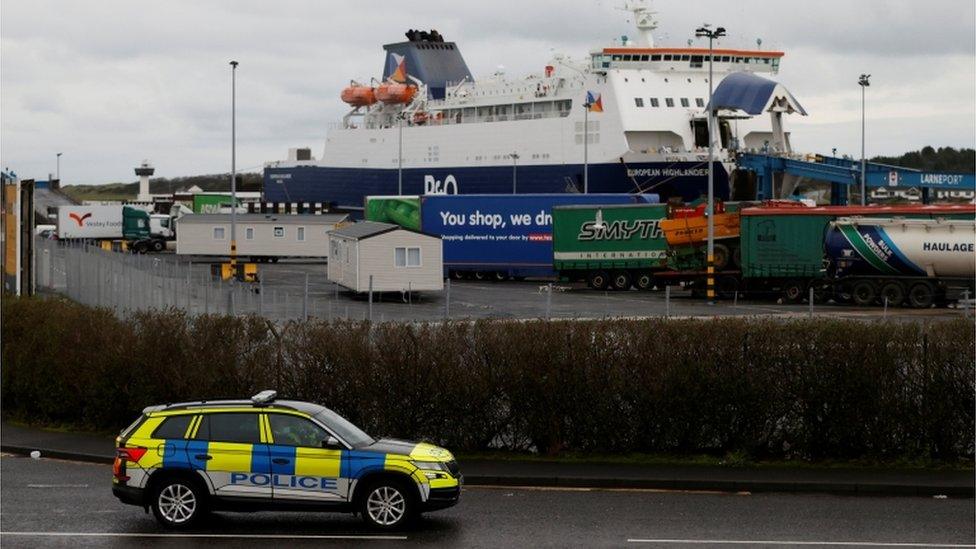Brexit: Mid and East Antrim Council rejects inquiry into port checks decision
- Published
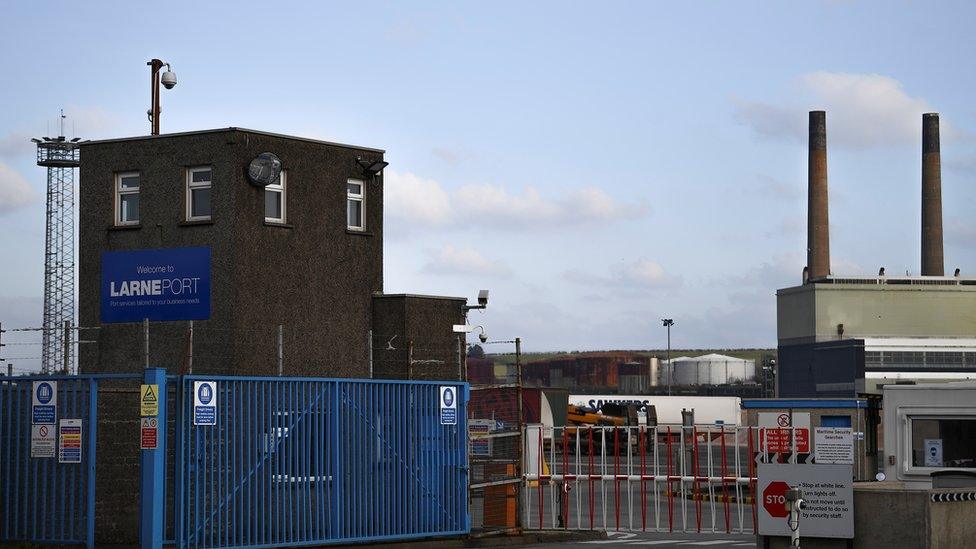
Mid and East Antrim Council withdraw staff from inspection duties at Larne Port on 1 February
Mid and East Antrim councillors have voted against holding an independent investigation into the decision to remove council staff from post-Brexit checks at Larne Port.
The proposal to hold an investigation was defeated by 26 votes to 11.
Staff were withdrawn temporarily on 1 February after graffiti appeared on walls in the area protesting about new the Irish Sea border.
The chief constable later said there was no evidence of a "credible threat".
On Tuesday evening, the Alliance Party put forward a motion calling for an independent investigation into what it described as "apparent discrepancies around information provided" before the council unanimously decided to withdraw the staff at the start of this month.
But the party was accused of "inflaming the situation" and the proposal was defeated.
There was one abstention.
After the meeting, Alliance Councillor Danny Donnelly said the decision was "a disappointing day for openness and transparency, not just for Mid and East Antrim, but across Northern Ireland".
He accused three unionist parties of joining together to block attempts for an independent investigation.
"This was an opportunity to stand up for openness and transparency, to signal as elected representatives we deserve to know the reasons behind our decisions, yet sadly sticking together to block that was just too important for the DUP, UUP and TUV," Mr Donnelly said.
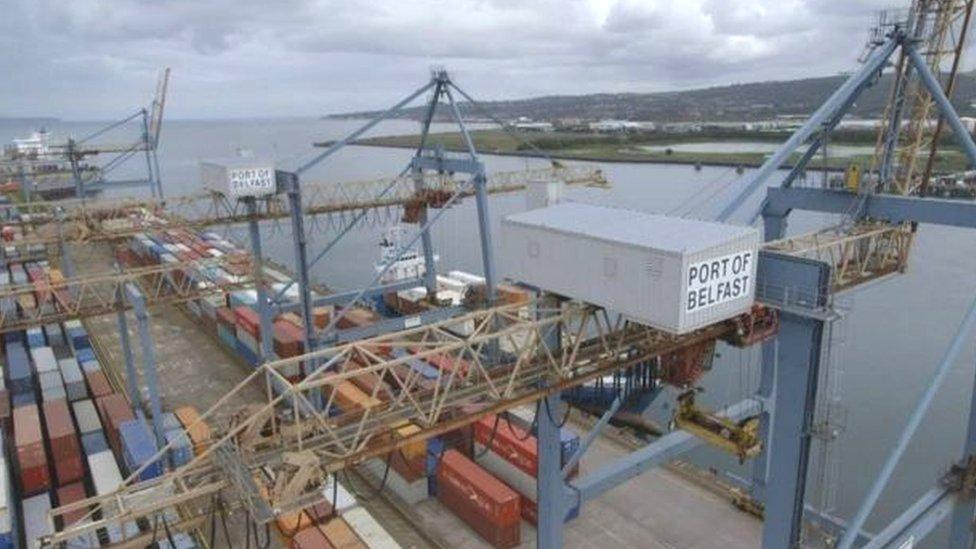
Brexit has led to new checks on goods arriving from Great Britain at Northern Ireland's ports
Separately, elected members of Armagh, Banbridge and Craigavon (ABC) Council have passed a motion calling on the UK government to abandon the Northern Ireland Protocol.
Monday night's meeting also saw ABC councillors vote by 22 votes to 19 that the council should write to Prime Minister Boris Johnson and Secretary of State Brandon Lewis asking the government to immediately apply safeguard measures to protect the integrity of the UK single market.

What is the NI Protocol?
The Northern Ireland Protocol is part of the Brexit deal which prevents a hardening of the land border between Northern Ireland and the Republic of Ireland.
It does that by keeping Northern Ireland in the EU single market for goods.
That has created a new trade border with Northern Ireland and the rest of the UK.
Unionists oppose the protocol, arguing that it has damaged internal trade from GB to NI and poses a risk to the future of the UK union.
But anti-Brexit parties in NI say that it must be implemented in full, and that issues should be worked out through joint UK-EU processes.

Initially councillors had been due to consider two Notices of Motion on the Protocol, the first put forward by the Ulster Unionist Party (UUP), the second by the Democratic Unionist Party (DUP).
The initial UUP motion was presented by councillors Sam Nicholson and Jill Macauley.
When it was put to the floor the DUP's Darryn Causby, who was due to put forward the second motion, proposed an amendment to the UUP's proposal.
This was accepted by Mr Nicholson "in the interest of unity" and that point, the DUP motion was withdrawn.
A further amendment proposed by the Alliance Party's Eoin Tennyson was voted down by 38 votes to three.
Sinn Féin's Liam Mackle said although the protocol was not something his party had wanted, the motion was "alarmist" and said the matter represented the "constitutional neurosis of unionism".
Thomas O'Hanlon from the Social Democratic and Labour Party (SDLP) said that although the protocol is not perfect, Brexit was the problem "as it is about creating borders".
"That's the entire point of the Brexit project," Mr O'Hanlon said.
In response, the DUP's Gareth Wilson questioned why nationalist parties "weren't receiving representations from the many business people who were experiencing delays and increasing costs as a result of the protocol with our biggest and most important market?"
When put to the vote, Sinn Féin, SDLP and Alliance Party members voted no, with UUP, DUP and independent unionist councillor voting in favour.
- Published20 February 2021
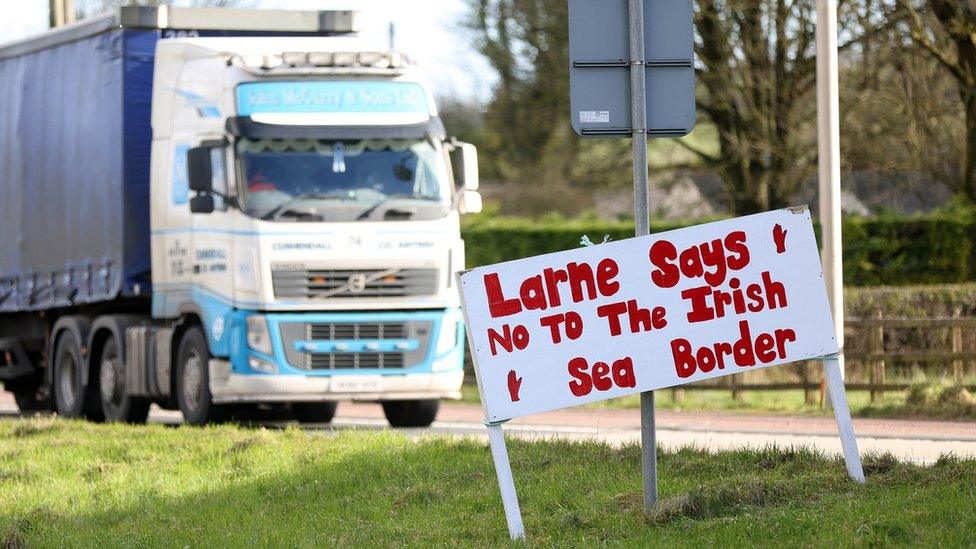
- Published11 February 2021

- Published5 February 2021
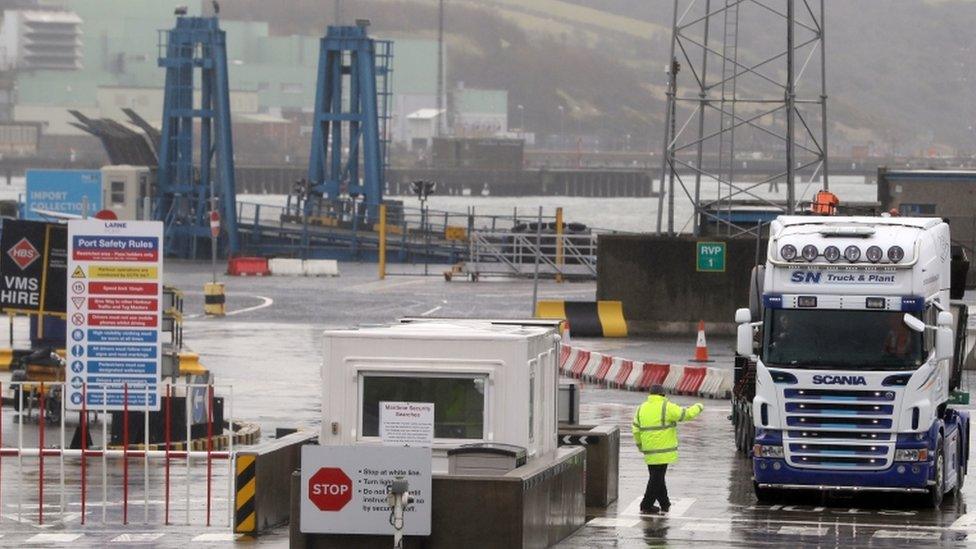
- Published9 February 2021
